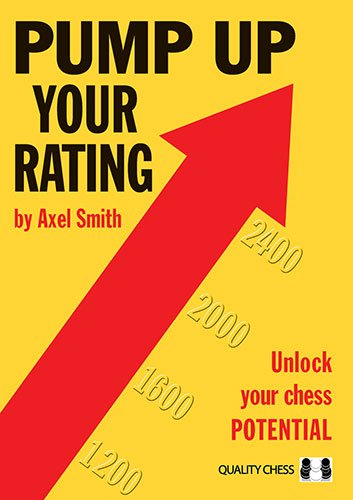Pump Up Your Rating: Unlock Your Chess Potential - download book

This book is mainly for the ambitious player, but don't let the word ambition frighten you! It only means that you really want to improve.
My ambition is to teach you what you need to get started; the book is both about "thinking chess" and about practising chess. And I do mean "thinking chess" not "thinking about chess" -in the same way that "speaking English" and "speaking about English" are different things.
Fulfilling these two aims obviously can't be done without showing a lot of instructive games. Since our game is universal, players of different strength can learn from the same examples. I have strived to explain in a way that makes the annotations understandable, but still not too simple.
In 2006, when I switched from being a human to being a chess player, I worked through 26 chess books from cover to cover. But somehow I arrived at the conclusion that improving at chess requires more active learning than what is possible by simply reading. My approach became to look for moves rather than generalizing them into verbal rules, and it worked well.
It would not be the best selling point to claim that reading books is unnecessary, but luckily, I don't claim that. Firstly, this book contains a fair share of exercises, forcing your brain to work with the material. Secondly, I think there are some rules of thumb and thinking techniques that you need to learn before working by yourself. I refer to sayings like "Put your rook on the same file as the opponent's queen", and methods like candidate moves, blunder checks and critical positions.
The first question is whether rules of thumb and thinking techniques are useful at all. I found an extensive debate about this while I was finishing this book and got myself up to date on the latest chess literature of the last few years.
Willy Hendriks takes the most extreme position in Move First, Think Later (2012). He argues that there's nothing but concrete moves; Alexander Kotov's mechanical variation trees, from Think Like a Grandmaster (1971), and other thinking techniques are oversimplifying and of no use at the board.
Since the debate covers a fundamental view of our game, I think I have to make my position clear. Hendriks' book is a good starting point, since it's fantastically well written.
Author: Axel Smith
Title: "Pump Up Your Rating: Unlock Your Chess Potential"
Released: 2013
Format: pdf/rar
Quality: good
Number of pages: 379
Size: 9 Mb
Comment 0